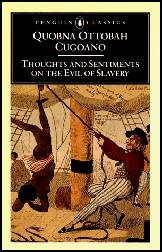Today is the last day of Black History Month. I say that with a heavy heart because I have always enjoyed having an entire month to immerse myself in black literature, icons, facts and events.
Before I end my Daily Tributes, I’d like to leave you with a parting thought: in order for us to succeed and make progress as a global community, Black History Month must be more than just a month, it must be a lifestyle.
I believe if we fill our homes with literature (I was privileged to have a black literature bookshelf in my childhood home, its impact on my psyche was immeasurable), actively patronise and support exhibitions and plays we will see progress in our children’s development. To be blunt, we must cease to complain about the lack of black history etc in the curriculum and fill the gaps ourselves. Balance out our children’s formative influences with some of our own.
I am a true believer in Orwell’s saying that “The most effective way to destroy people is to deny and obliterate their own understanding of their history.” Via a concerted, conscious and creative effort to educate our children that we shall combat the low self-esteem that our children are often displaying as a result of being disconnected from their culture.
I would like to close Black History Month with a short tribute to my mum who was, and still is my anchor. It was my mum who told me that my black skin and heritage made me beautiful despite what people told me. She instilled in me self-esteem, self-confidence and self-love; some of the greatest gifts a child can ever be bestowed. It was she who always taught me about my ancestors and legacy. When she passed away she showed me the true meaning of legacy through the great many people who attended her funeral and spoke about the positive impact she had on their lives. I am so very proud to stand on her shoulders.
On the topic of legacy I’d like to leave you with one of my own personal favourite quotes:
I believe the words of our wise have a real tangible effect on our perspectives. My advice is that when someone moves you with their words, note them down, absorb them and let them have actual applied meaning in your life. And also, please do send me some of your own as I am always seeking inspiration. Use the hashtag #blackhistorymatters to send me a few of your own (and any interesting facts or tributes) and let’s keep the spirit of Black History Month alive all year round.
#Rhineydailyshouts
#blackhistorymatters
#sendingtheelevatorbackdown
#standingontheshouldersofgreatness
























